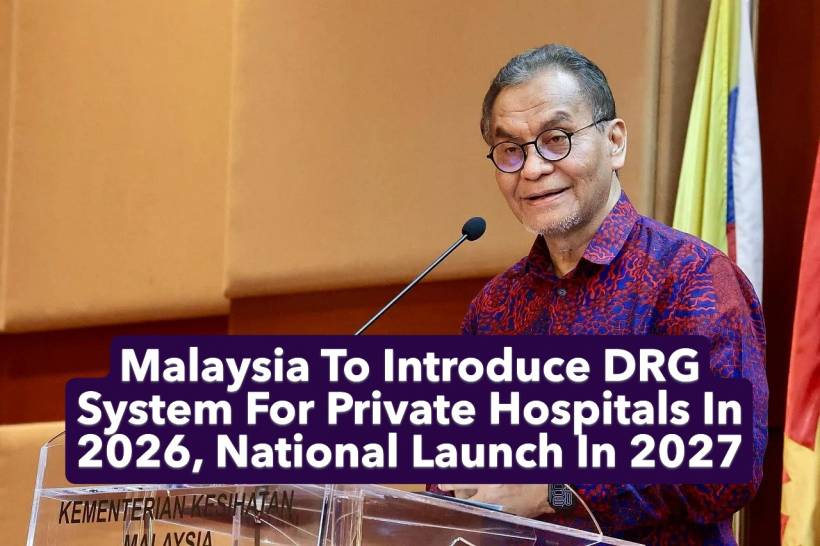Malaysia is gearing up for a major reform in how hospital treatments are billed and reimbursed. The Ministry of Health (MOH) has confirmed that a Diagnosis-Related Group (DRG) payment system will soon become a key part of the country's healthcare financing model — first for private hospitals in 2026, followed by a full national rollout in 2027.
What Exactly Is The DRG System?
The DRG model is a structured way of classifying hospital cases into groups based on diagnosis, treatment, and resource usage. Instead of billing item by item, hospitals are reimbursed with a set fee depending on the type of illness and treatment provided. This system aims to improve cost transparency, efficiency, and standardization across healthcare providers — essentially, ensuring fair payments and reducing unnecessary medical inflation.
In Malaysia's case, the DRG approach is set to replace traditional fee-for-service models that have long been criticized for inefficiency and cost escalation, particularly in private healthcare settings.
DRG Comes To Private Hospitals First
Health Minister Dr Dzulkefly Ahmad announced that the first phase of DRG implementation will begin with private hospitals in 2026. This early rollout will be linked to a new government-led health insurance or takaful product, called the Medical and Health Insurance/Takaful (MHIT) scheme.
"This MHIT product serves as a standard platform to support a transparent and effective DRG reimbursement system," Dr Dzulkefly explained in his written reply to Parliament. The move is designed not just to prepare private hospitals for the change, but also to test and refine the system before it becomes national policy.
According to the minister, while the DRG model in the private sector will differ slightly from the one used nationally, both are designed to be interoperable, allowing data and systems to integrate seamlessly in the future.
Tackling Medical Inflation
One of the government's key motivations for fast-tracking DRG in the private sector is to address rising medical inflation — a trend that has been burdening Malaysians seeking private healthcare. By introducing fixed payments for specific diagnoses and treatments, DRG discourages overcharging and ensures better cost predictability for both insurers and patients.
Dr Dzulkefly described the private hospital DRG rollout as a "transitional measure" to curb costs while building toward the full national DRG system.
The Roadmap To A National DRG
Malaysia's journey toward a national DRG system has been in motion since 2023. The Ministry of Health has laid out a five-year roadmap that sets clear milestones:
This structured approach ensures that when Malaysia's national DRG system goes live in 2027, it will be backed by robust data, standardized processes, and active participation from both government and private healthcare providers — including teaching and military hospitals.
Legal And Policy Adjustments Ahead
To support the nationwide DRG rollout, the Private Healthcare Facilities and Services Act 1998 (Act 586) will likely undergo amendments. Finance Minister and Prime Minister Datuk Seri Anwar Ibrahim previously confirmed that the government is studying revisions to this law to make DRG mandatory for private hospitals.
However, the timeline for these legislative changes remains uncertain, as Dr Dzulkefly has yet to announce when an amendment bill will be tabled in Parliament.
A Step Toward A More Sustainable Healthcare Model
The upcoming DRG framework represents a fundamental shift in how Malaysia funds and manages healthcare delivery. It's not just about controlling costs — it's about building a more equitable, transparent, and data-driven healthcare system that aligns public and private hospitals under a unified standard.
If implemented effectively, the DRG system could become a cornerstone of Malaysia's health financing reform, balancing affordability for patients with sustainability for healthcare providers.





Comments